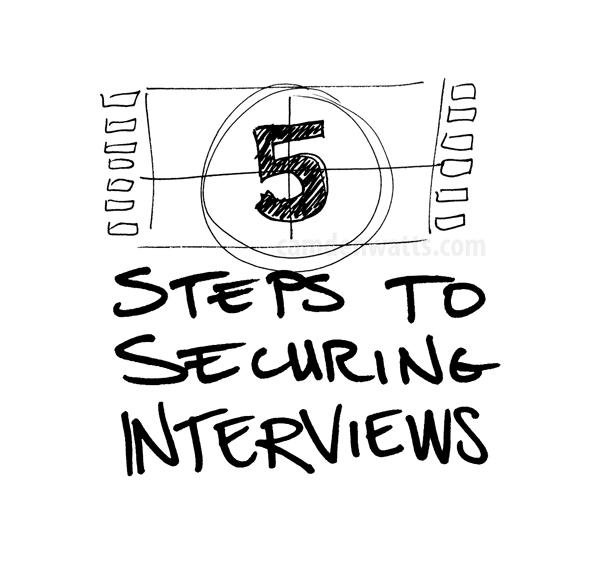 Last week I posted 5 Steps to Starting Your Documentary Film, since a number of people are asking me similar questions. The post seemed to be helpful, which is pretty awesome. In the comments, Kathy asked about securing interviews. So today I’ll run through a few thoughts I have on the topic.
Last week I posted 5 Steps to Starting Your Documentary Film, since a number of people are asking me similar questions. The post seemed to be helpful, which is pretty awesome. In the comments, Kathy asked about securing interviews. So today I’ll run through a few thoughts I have on the topic.
Keep in mind, of course, that each doc is different. Filmmakers have to make their own choices. These are just a few of my rules for securing interviews, and they might not work for you and your subject matter. That being said…
Here are five steps to securing interviews for your documentary film:
1. Do your homework
Read as much as you can about your subject matter. Did the person you’re interviewing write a book or grant previous interviews? Great! Get your hands on that material and study it.
I find that having as many points of reference as possible helps me connect with that person. Personally, I like to be very familiar with the guy I’m interviewing and the experiences he has had. So, that way,when he tells me his story while we’re rolling, my brain doesn’t have to work so hard to process the conversation while simultaneously thinking of all the other production-related stuff happening around me.
2. Start a relationship, be trustworthy
This one is pretty simple, but it’s also pretty hard for some people.
Build a trusting relationship with the person you want to interview. Do your best to honor them, their time, and their stories.
Don’t make promises you can’t keep. If you do make a promise, do your best to keep it.
Set realistic expectations about your work, project, and results very early on. Make it easy to have open, honest communication with the people you’re working with every step of the way.
3. Make scheduling work for you
When you do start scheduling interviews, be strategic in scheduling them. Think about you, your crew, and your subject: what day of the week and time of day will get you the best results on camera?
4. Share rough cuts (or don’t)
Sometimes filmmakers want the subjects of their film to see the finished version at the premiere, along with the rest of the audience. Sometimes filmmakers want the subjects of the film totally invested in the filmmaking process, so they end up seeing a few rough cuts along the way. Work in a way that suits you; however, know that you only have a limited amount of “fresh eyes” to review your work. Save them — or don’t.
5. Be willing to reshoot
Remember to leave yourself time to reshoot. You may get back to the edit bay and see or hear something that ruins an interview for you. Leave yourself enough time to go back and revisit that material on camera.
But beware, your doc may be about living, breathing people. People change over time: hair styles, weight gain/loss, facial hair, attitudes, etc. Be willing to reshoot but know that you’ll rarely– if ever — capture the same thing on camera twice. So know that going into it and plan accordingly.
So, there you have it. A few things to think about when securing interviews. I can’t give away all my production secrets for free, ya know? Besides, I don’t pretend to know all there is to know about the ever-evolving world of documentary filmmaking. It’s a complex and fascinating creative field.
Do your own homework. Experiment. Research. Read — a lot. And keep me posted on how your project is coming along. Remember, every filmmaker has to find their own path. You’re smart. You’ll figure it out.